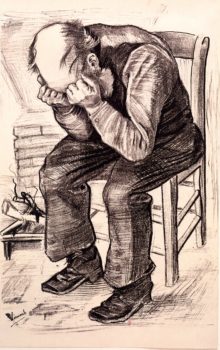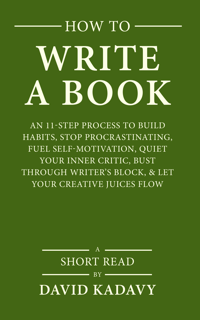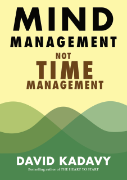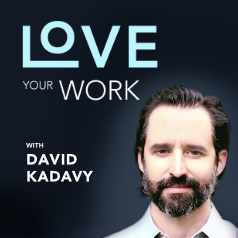Subscribe to blog updates via email »
Why I Killed a $150,000 Passive Income Stream – Love Your Work, Episode 214

There’s an expression, to burn your boats. It originated with a military strategy. Hernán Cortés famously “burned the boats,” after arriving in the New World to conquer the Aztec empire. (He actually “scuttled” his ships. He sunk them.)

WANT TO WRITE A BOOK?
Download your FREE copy of How to Write a Book »
(for a limited time)
I recently burned my boats, when I killed off a $150,000 passive revenue stream.
- Listen in iTunes >>
- Download as an MP3 by right-clicking here and choosing “save as.”
- RSS feed for Love Your Work
The birth of a passive income muse
In March of 2007, I was sitting with some friends on the cable-locked chairs and tables – at two in the morning – on the porch of a closed restaurant in Austin, Texas.
We were doing the kind of thing that we did at the time, after a night of parties at the SXSW conference: We’d sit around and talk about our ideas. Facebook and Twitter were still fringe services – most of the mainstream world knew nothing about them. The internet seemed full of opportunities.
The subject of my dating life came up. I was terrible at finding a girlfriend, but I was good at finding dates. I described in great detail to my friends the way I had optimized my process of online dating. I had something to say about what you should write in your profile, what your pictures should be like, and what to say in your messages.
I’ve since learned that this is the way I approach many things. I like to get deep into the details, to break it down into a framework, then do my best to explain it in a clear way.
I thought I was talking about something very obvious or unexceptional, like tying your shoes, but my friends were on the edges of their seats.
As was standard at SXSW at the time, whatever you talked about, there was an idea for a business there. “You HAVE to blog about this,” one friend said. Then, of course, the rest of them piled on.
Now, almost 13 years later, I’ve made well over $150,000 off of the blog that I created because of that conversation.
I burned my boats
Last month, I killed this blog. I didn’t so much kill it as I let it expire. Literally, I simply let the domain expire.
I burned my boats.
At the height of this blog’s revenue, I earned $11,000 in one month. The amount of work I did on the blog during that month: approximately zero. It was a passive income “muse” as Tim Ferriss would call it.
In the days before I killed this blog, I wasn’t earning near that much, but I was earning something.
Why burn your boats?
Intuitively, it makes no sense to burn your boats. Intuitively, it makes no sense to kill off a passive income stream. Something that’s earning you a profit, without you needing to do any work.
But our intuitions aren’t always correct. Our intuitions sometimes see opportunity where there is no opportunity. Our intuitions sometimes see harm where there is no harm.
Opportunity where there is no opportunity
First, the opportunity where there was no opportunity. The revenue was way down on this site. I made maybe $300 in 2019 off of this site. But, I didn’t do any work on this site.
I had a couple of opportunities there. I could invest some time, write a little content, build a few links, and maybe I could bring that revenue back up. I also could sell the site. I even had an interested buyer.
But these opportunities weren’t the opportunities they seemed. This has a lot to do with the perception of harm where there is no harm.
The real pain of loss aversion
In behavioral economics, there’s the concept of “loss aversion.” That losses feel about twice as bad as gains feel good. Losing a $300 a year income stream feels about as bad as gaining a $600 a year income stream feels good.
Which is to say that it hurt to kill off this passive income stream. But I reminded myself that the reality was probably not as bad as it actually felt.
Added onto that hurt was that this passive income stream held a special emotional significance. This passive income stream made possible the business that I have today.
The start I didn’t have the heart for
First of all, it wasn’t easy for my friends to convince me to start this blog. I didn’t write a book called The Heart to Start because starting things always came easily to me. I was full of objections.
Primarily, I didn’t want to build a personal brand around online dating tips. I didn’t want to be known as the “online dating” guy.
But my friends pushed me to start the blog. When I presented this objection, that I didn’t want to be the “online dating” guy, they said I could make up a name.
So that’s what I did. I started the blog under a pseudonym on WordPress.com, and began to write. It wasn’t until I really got rolling that I even bothered to buy a domain, and eventually started hosting the blog on my own server.
And I’m glad I got started.
Early days
So, I worked on this blog for about three years before I made any money on it. Yes, I knew that the revenue potential was there, but mostly it was something I did on the side. I enjoyed the freedom of writing under a pseudonym. I enjoyed the focus of writing on only one subject.
Most of all, it was a good outlet for me. I’d come home from a disastrous or depressing date, and there’d be emails in my inbox. People telling me that my blog posts were helping them. I wasn’t writing anything risqué or manipulative or even ground-breaking. To me, it was common sense stuff – but it helped people, and that kept me going.
Perfect timing
When I did finally start making money from this blog, the timing could not have been better.
November 22, 2010, is when I signed my contract to write Design for Hackers. That month, I made $659 from this blog. It wasn’t a lot, but I needed all of the extra money I could get.
I had just spent three years on my own, searching for some idea that was closer to my core – something other than being the “online dating” guy – and I had just found it. I had written some blog posts about design, gotten a book deal, and eagerly signed the contract.
I now had no clients. I had a meager first-time-author advance, and I had a book to write. If I missed a single deadline, I’d have to give back my advance.
But writing a book is an all-consuming process, and I didn’t have the time nor energy to find some other way of bringing in income.
Fortunately, that’s when this passive income muse took off. That November, I had made $659. In December, it went down to $517. But in January, the revenue skyrocketed. I made $1,799, then $1,856 in February. By April 2011, this site brought in $4,726. It was paying all of my living expenses. Meanwhile, I was finishing the first draft of my book, Design for Hackers.
How did I make that much money?
I talk more in-depth about this passive revenue stream in my course, Blog 2 BLING!, but the basic way this worked was that I was referring people to Match.com. At the time, if you searched for “match.com promo code,” my site was maybe the second or third result.
I got 100% of the first purchase a customer made through my promo codes. If they signed up for six months for $120, I got $120.
How passive income brought me closer to my core
Yes, I could have doubled down on this site. Yes, I could have dropped the Design for Hackers thing, and made more money. But it wasn’t what I was passionate about. It wasn’t the intersection of my Love and Money Venn diagram.
But, it did get me closer to that intersection. So, this passive income site meant a lot to me. If I hadn’t had that income coming in, I don’t know if there would have been a Design for Hackers. I wouldn’t have had the runway to get where I am today, where – as you can see in my monthly income reports – I’m keeping my head above water as an independent creator, living in South America.
Losing opportunity to create opportunity
So yeah, it hurt to let this site die. It also hurt to pass up what seemed like opportunities to revive the site, or at least sell it.
And this is where the value of burning your boats comes in. It’s about opportunity costs. When you burn your boats, you can’t go back. When you burn your boats, you aren’t spending any energy thinking about your alternatives. When you burn your boats, you are committed to your mission.
Yes, it’s nice to have something to fall back on. Yes, it’s nice to have your options open. You get something out of it. But sometimes you get more out of not having those options.
Opportunity costs are something you might think about in investing. Say you’re returning 4% a year on an investment, with no chance of losing your money. Depending upon your strategy, you might want to keep your money there.
But say there’s another investment with unlimited upside, and a chance of losing a good amount of your money.
It might be worth it to take your money out of that 4% investment, and put it in the unlimited upside investment. But you only have so much money. At what point do you put it all in the unlimited upside investment?
Yes, I could have spent some time and money trying to revive this site. I could have even given it to someone to manage it, for a revenue share. I would have made more money than I was making.
But what would I have missed out on? How much better could I make my podcast with that time? How much progress could I make on my next book? What courses could I build with that time?
Don’t learn what you don’t need to know
Additionally, I could have sold the site. I would have to collect together all of the loose ends, collect the money, and make the hand-off.
I would have had to do a process I hadn’t done before, and that I don’t plan to do in the future. I’m not in the business of flipping websites, so what’s the point of learning to sell a website.
Not to mention that if I did sell the website, what might they do with the user data? What might they do with the brand that I created?
In the end, it wasn’t worth it.
A strategy for the scatterbrained
At one point, this passive income stream got me where I wanted to go. Toward the end, it was doing little more than take up space in my mind.
As I talked about on episode 180, I’m a “Perceiver” in Myers-Briggs. I see possibilities everywhere. I don’t want to close doors. I don’t want to let go of opportunities.
I’m scatterbrained, I get shiny object syndrome.
Can you relate?
Where do you need to burn your boats?
Something to think about: Where do you need to burn your boats? What opportunities do you have that are taking up mental space and other resources? What could you accomplish if you freed up that space?
Burn your boats, burn your boats, burn your boats.
Image: Worn Out, Vincent Van Gogh
My Weekly Newsletter: Love Mondays
Start off each week with a dose of inspiration to help you make it as a creative. Sign up at: kadavy.net/mondays
I've been adding lots of new content to Patreon. Join the Patreon »Join the Patreon for (new) bonus content!
Listen to the Podcast
- Listen in iTunes >>
- Download as an MP3 by right-clicking here and choosing “save as.”
- RSS feed for Love Your Work
Theme music: Dorena “At Sea”, from the album About Everything And More. By Arrangement with Deep Elm Records. Listen on Spotify »


